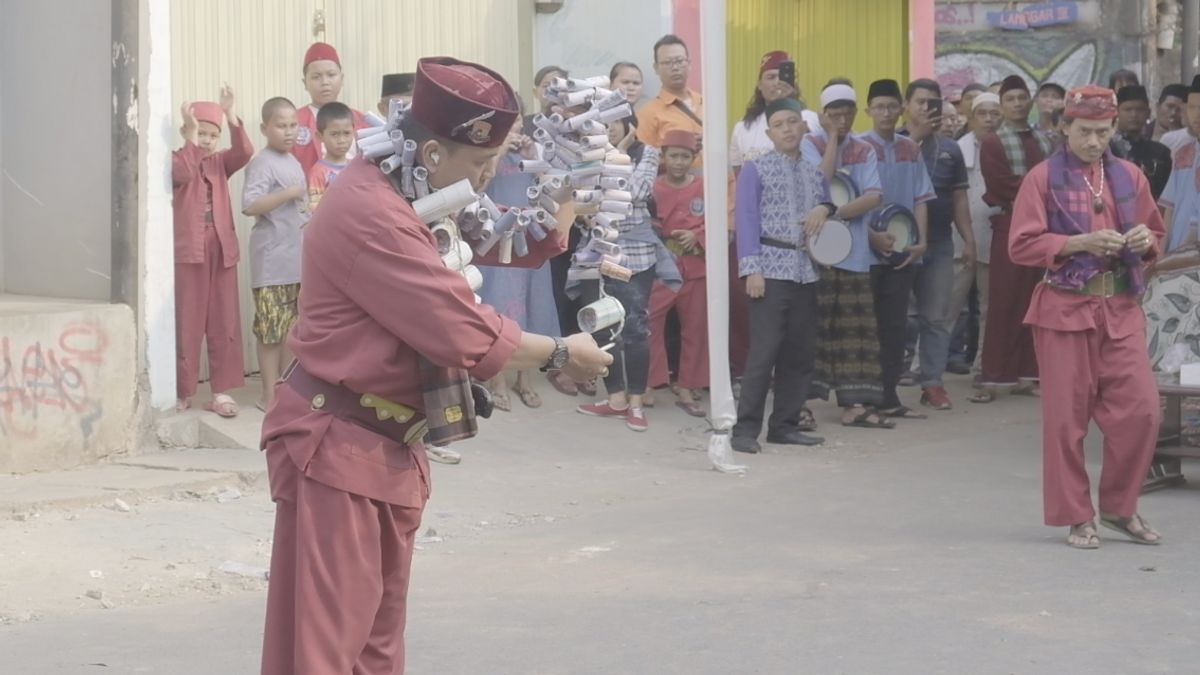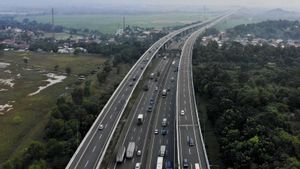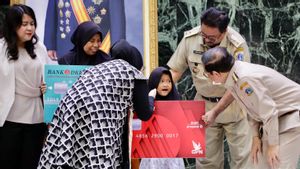JAKARTA - It is difficult to separate the holy month of Ramadan and the tradition of lighting firecrackers. The two of them are related. This can be seen from the activity of lighting firecrackers as an option chosen by young people throughout Indonesia to enliven this blessed month. So, naturally when Ramadan arrives, firecrackers begin to be sold by roadside street vendors, filling shop windows.
At that time, the enthusiasm of most of the younger generations, known to be passionate, often enlivened the entry of the holy month through the sound of firecrackers. How could it not be, how lonely Ramadan would be without the presence of the sound of firecrackers.
Whether it is intended to wake people up to fast for dawn, waiting for the sunset drum to arrive, to celebrate the celebration of Lebaran day. Therefore, even though this tradition is considered dangerous and does not originate from Islamic law, in fact this tradition can quickly spread throughout Indonesia and has been around for a long time.
One of the evidences related to the description of the experience of playing firecrackers in the colonial era, was also presented by an old Indonesian journalist, Muhamad Radjab in his autobiography entitled Semasa Kecil di Kampung 1913–1928 (1950). For him, the fasting month will be special if there is a tradition of lighting firecrackers.
"First of all, you don't have to go to school again that month; every day we can play as we like, day and night, setting firecrackers and Betung cannons. In the villages it has become a habit for people to put up firecrackers in the fasting month. "
He also said that in the early months of Ramadan, there were still few sellers of firecrackers. However, over time it developed as the day of Eid got closer. "... The closer to Eid, the more people sell firecrackers," he wrote.
"This is what is entertaining and enlivening. The allowance obtained from parents is to buy firecrackers, which are installed economically, or to buy kerosene for the installation of Betung cannons."
Different Radjab, different experiences spoken by a little boy named Kusno in Mojokerto. At that time, just before Eid, Kusno could only peek at the people playing with firecrackers through a small hole in the bamboo wall in his room.
As a result, his heart became sad so Kusno said: This is unfair. Why can my friends buy firecrackers, and I can't?
Kusno's heart became even more sad, when from year to year, he couldn't play firecrackers - mercon - with his friends. However, Kusno was delighted when an acquaintance of his father gave a gift to the firecracker to him. It was a very meaningful gift, which he had received in his life. To the extent that, he could not forget the gift of firecrackers.
Today, people know a little boy named Kusno, none other than Soekarno, a proclaimer and the First President of Indonesia. The experience of Bung Karno's childhood playing with firecrackers is a story that has been immortalized by S. Kusbiono in Bung Karno: Father of the Proclamation of the Republic of Indonesia (2003).
Therefore, Bung Karno's story is authentic evidence of how firecrackers have become a game commonly played by children during Ramadan and Eid. Because, until now this tradition is still maintained, even though it often makes people surprised.
The existence of firecrackers
Zeffri Alkatiri in his book entitled Jakarta Punya Cara (2012) tells of the tradition of firecrackers that were originally brought by the Chinese to Batavia. The proof is, to this day the tradition of lighting firecrackers is still perpetually used in various Chinese rituals, such as Sin Cia and Cap Go Meh.
Even though now in various regions there have been many prohibitions on the tradition of playing firecrackers because it is included in the category of things that bring a thousand waste. In fact, different things will be obtained when you see the existence of firecrackers in the colonial era, which believes that this tradition can show the value or wealth of a person.
"In the colonial era, the tradition of burning firecrackers was also busy, especially burning on Christmas, New Year, Eid and on several days of rituals of the Chinese Betawi people. The tradition of burning firecrackers can also show a person's prestige. This is because the more trash burned by firecrackers in his house, the more he is considered wealthy or the more they show their capital ability, ”said Zeffry.
On that basis, firecrackers were originally introduced by the Chinese, slowly but surely began to be favored by the marginal Betawi people to celebrate historical moments in life. "... Periphery Betawi do it for the purposes of circumcision, marriage, and sometimes also for the hajj," he continued.
This was confirmed by the Betawi Young Leader, Masykur Isnan. According to him, the tradition of firecrackers in Betawi society has adopted the context of the origin of firecrackers from China in terms of driving away bad things. By the Betawi people, the meaning of firecrackers is modified into a form of gratitude.
"In the Jakarta-Betawi society, firecrackers have their own meaning as an expression of gratitude and a symbol of social status. Regarding the positive and negative impacts of firecrackers themselves, they are very casuistic, meaning that they are very situational, as long as they are responsible, the tradition will be preserved in the eyes of the Betawi people in general, "Masykur Isnan told VOI, Tuesday, April 28.
Even so, differences in views still exist between the older and younger generations. The older generation often finds the sound of firecrackers disturbing because they undermine the essence of Ramadan which means tranquility. Meanwhile, the younger generation considers it an exciting and challenging activity.
Seeing this phenomenon, the Rector of the Sumbawa Besar Social and Cultural Institute (IISBUD) Miftahul Arzak, who was contacted by VOI some time ago, revealed this as a difference in point of view between young people whose souls are still looking for entertainment. Meanwhile, the older generation always prioritizes religious worship.
"In the month of Ramadan, the activity of lighting firecrackers is sometimes associated with young people, while religious activities have become a label for parents. "Due to the anger of the parents towards the young people who set off firecrackers, it can be concluded that the parents did not want the busyness of Ramadan to be disturbed," concluded Miftahul.
The English, Chinese, Japanese, Arabic, and French versions are automatically generated by the AI. So there may still be inaccuracies in translating, please always see Indonesian as our main language. (system supported by DigitalSiber.id)








